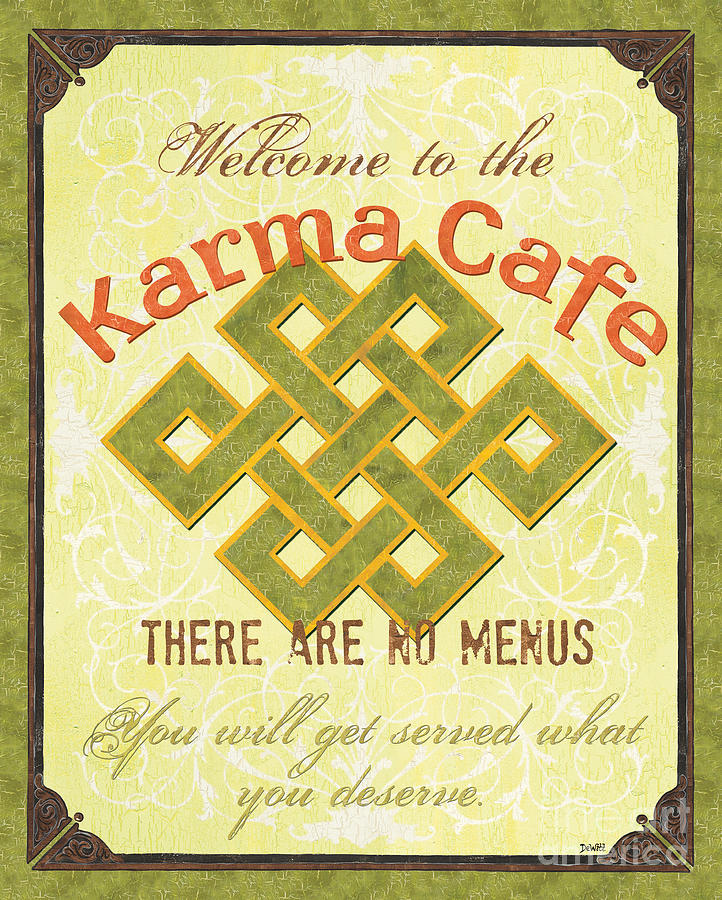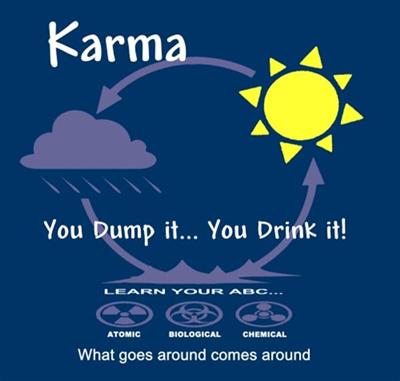How is Karma being defined here? Or.... what are the different definitions that people have of karma?
That is a very important question.
Let us define “Karma.” Karma, as AQ7 stated, is loosely translated as “deed.” And as I stated previously, it signifies a cause and effect relationship with experience and past conduct. This definition, however, leaves much room for interpretation. So let’s give it some context.
It is now believed that “Karma” originated from a movement called “Shramana.” This pre-dated Buddhism and Vedic Hinduism, but gave rise to the former while paralleling the later. (See livepage.apple.com)
The Brahmanic religion later adopted the concept of “Karma” a thousand years before Christ, and since then, has been one of the main proponents of “Karma.” Their interpretation propounded its meaning to entail that one’s conduct now will have a bearing on one’s future incarnations in the life. Buddhists also advanced this concept in their belief system. As such, this has been the general understanding of Karma throughout the world, that what you sow in this life will be reaped in a latter.
In the late 19th and early 20th century, however, the definition of “Karma” changed under the beliefs espoused by New Age groups, one of the primary groups being the Theosophical Society. Those, such as Madame Blavatsky and others, redefined this concept to entail a cause and effect relationship within this lifetime based on thoughts, feelings and actions toward others.
This concept of a “cause and effect relationship” here in this life is not a new concept, and does not have its ties to the original meaning of “Karma.” At least, it was developed within the Western world independent of Eastern thought. In the writings of Emanual Kant, the concept of
poena naturalis took hold on the public, which of course originated from the great minds of the Greek era of Western history. Here you had the concept of “just desserts.” What you sow, so shall you reap. It was the idea that justice is meted out naturally upon those who commit crimes against nature, and I think this should be used to describe the new age concept of “Karma.” This distinguishes Karma quite well and allows us to truly crystalline our understanding of the laws of nature.
Of course, this mystical (or magical) thinking that there is some law in effect that dishes out ones just desserts for crimes against nature is not supported by history nor the natural world.
For example, say I find some woman whom I intend to rob, and I walk up to her and sock her in the face, while reaching for her purse. And say I did not notice her large boyfriend coming around the corner. And say that said large boyfriend socks me in the face and makes me eat concrete. I would think: “Whoops. My bad. I guess I got what I deserve.” But say that said boyfriend was not around the corner but at home. And the woman had no recourse but to give me her purse to avoid further abuse. And say I got away with her purse. And also say that I never was punished in my lifetime for the crime I committed against her. Where’s my “Karma”?
Although this is a simple scenario, it happens all too often that people get away with their transgressions against others and humanity. There are no guarantees that justice will be served.
I hope I am explaining this well. I am in a hurry, but I wanted to focus this discussion before people start redefining the subject and everyone is try to address a moving target.
So the point being is that the New Age definition of Karma is really a misnomer for natural justice. This is, of course, unless you are attaching a mystical connotation to the word in the sense that the “Karma Police” are lurking in the ether to make sure you “reap what you sow.” That concept, obviously, does not play out in reality, not hear on Earth. So I would recommend abandoning it. If it really worked, we would not need a justice system.
Not sure, if the jpeg has inaccurately portrayed Karma, or if it has been inaccurately interpreted whilst reading the poster.
The poster for sure does not say that the bird has done anything wrong in eating the ants, no. Please go back and look again.
It has the word “Karma” in huge letter’s as part of its heading. We cannot read things out of context. Also, I was not addressing the poster's views.

What the gist of the poster is that today one might be powerful and dominte the other, whilst tomorrow circumstances may change, and the other may be powerful. Today the bird may prey on the ants (being the powerful one), whilst later the ants take over the very same role. Times and circumstances can change. The bird is suppposed to eat the ants, and later the ants eat the bird. Circumstances change or reverse, since time controls all. It is just to humble us down.
The birds situation for karmic retribution is moot because the bird no longer exists. The circumstance has not reversed because the circumstance is different. In the first situation, the bird and the ants are alive. The bird takes the ants’ life, in a state of oppression over the ants, as you describe it. In the second situation, the bird no longer exists, so the ants are not oppressing the bird. The bird, for all sense and purpose, is the equivalent of dirt, and the ants are operating in another sense, facilitating the natural cycle of life and death. There is no element of Karma in this scenario, regardless of how it is being defined. The bird cannot be served its karmic desserts if it no longer exists.
Again that is a bit ludicrous, I am sorry to say. Karma was certainly not at all created by religion.
Really? How do you know? Renowned historians and archeologists have not been able to definitively identify the origin of Karma, so how can you say definitively that it was not created by religion? If fact, all evidence supports the idea that it originated in religion.
I think the problem lies with the Western world and the ignorance that it is enveloped in about theories coming from other countries.
I agree.
 .
.  AQ7
AQ7







